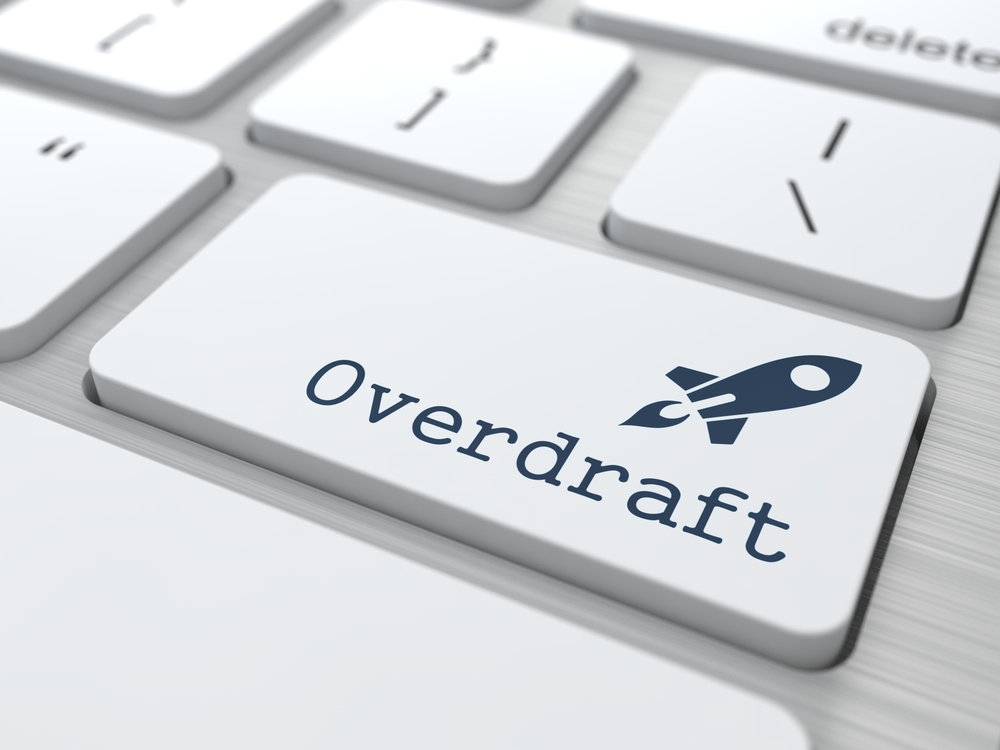When cash flow is tight, your business may need to access extra funds to meet its commitments. If you don’t want to commit to a full business loan though, you may feel like you don’t have many options.
But that’s not necessarily true.
A business overdraft is one option that affords a surprising amount of flexibility, and this is precisely where many businesses turn in a tight spot.
If you’re considering using a business overdraft, this article covers a few things you should know.
We’ll discuss –
- How a business overdraft works.
- Their various benefits.
- How quick and easy they are to set up.
- Why business overdrafts are such a popular choice for small businesses.
How does a business overdraft work?
The concept is the same as an overdraft on a personal bank account: Your bank gives you access to a permanent line of credit which you can dip into as and when you need it.
You’ll trigger interest repayments when you enter your overdraft, but you only pay interest on the amount you spend. For short-term borrowing, this means that the total cost may be lower than an equivalent loan: A big draw for business owners who are wary of the costs associated with other types of borrowing.
There are two types of business, formal and informal.
A formal overdraft is agreed in advance. You have a limit on your borrowing, and an agreed interest rate.
With an informal overdraft, the bank covers the cost if you spend beyond your account limit with no formal overdraft facility in place. Because there is no formal arrangement, the cost of an informal overdraft is higher, and the repayment window is shorter.
How can an overdraft help a small business?
Business overdrafts are fantastic short-term borrowing facilities. They give real peace of mind in the form of agency, flexibility, and predictability.
One area in which overdrafts excel is covering for unplanned, ad hoc expenses. If one of your drivers writes off a delivery van, for example, you can pay the insurance excess with your overdraft.
Or, slightly less drastic, maybe one of your suppliers is offering a particularly good deal on some inventory. Rather than having to pass up the opportunity, an overdraft could cover the cost.
Think of it a bit like a safety net to catch you should anything unexpected arise.
Overdrafts also lower the risk of external cash flow disruptions impacting your business. If a customer is uncharacteristically late in paying an invoice, an overdraft can prevent this from drying up your cash flow.
This example works both ways, too. If a supplier issues an unexpected invoice – perhaps an annual service renewal that slipped your mind – you can make the payment without having to put other planned purchases on hold.
An overdraft is also useful in buffering against seasonality. If your income always dips at the same time each year, you can use your overdraft to cover expenses.
How to get a business overdraft
Unlike business loans and other business finance solutions, an overdraft is attached to a pre-existing bank account. This means you’re relatively restricted when comparing options. You have two choices –
- Ask your current account provider to add an overdraft.
- Take out another account and get an overdraft there.
Because of these restrictions, terms are sometimes less favourable on overdrafts than other finance solutions. Less opportunity for competition means a lower incentive to offer more competitive rates.
Once you apply, you’ll be assessed against various eligibility criteria, and they’ll decide whether they are happy to lend. You’ll then discuss whether you agree to the terms and interest rates. If so, both parties sign a contract to confirm the arrangement.
Some providers do give the option to secure an overdraft. If you opt for this, you’ll put up a valuable asset that the lender can recuperate their losses with if you’re unable to pay. You may be able to enjoy lower interest rates on a secured overdraft, but this comes with the usual caveat that terms will vary between lenders.
Depending on your financial situation, securing your overdraft may be a requirement rather than a choice. If your credit rating or history suggests that you may struggle to make repayments, as one example, it is more likely that you’ll have to secure your overdraft.
When applying for a business overdraft, be aware there may be fees to pay on top of interest. These will vary between lenders, and will usually fall into these categories:
- A fee for setting up your overdraft.
- A fee for making changes to an existing overdraft.
- Monthly fees for continued access to the overdraft.
Many business owners wonder whether such overdraft fees are tax-deductible. You may be surprised to know that yes, they are.
At the end of the tax year, make sure to include any overdraft fees for the financial period in your tax documents.
Business overdraft alternatives
Overdrafts are great, but they’re not perfect. Some business owners are wary of them in general, while others will be on the lookout for a longer-term funding solution that’s better tailored to their needs.
A small business loan is a popular alternative. You’ll pay interest on the whole loan amount rather than just what you spend, but you’ll have access to larger amounts.
Many bespoke business finance solutions are available, too. Each fits a specific set of business needs. You can borrow against individual invoices to unlock the capital they contain, for example. Or you can borrow against high-value assets to gain access to them while making payments.
At Access Commercial Finance we’ve already helped hundreds of satisfied start-ups to achieve business growth. If an overdraft doesn’t meet your borrowing needs, get in touch, and we will match you with the most suitable funding solution for your needs.





